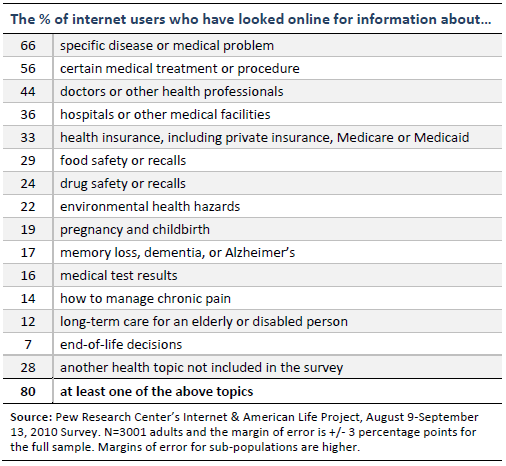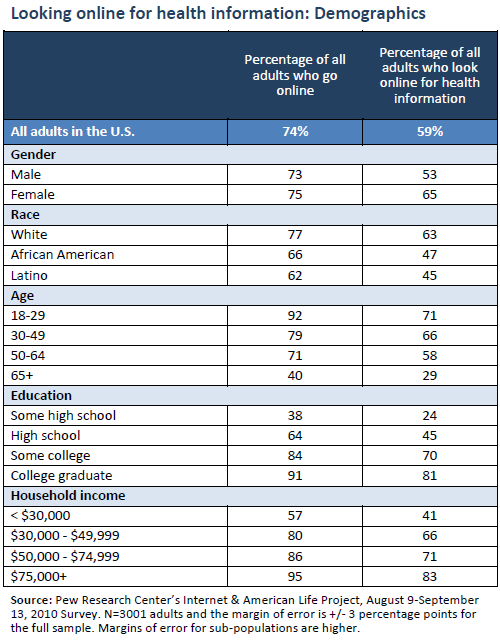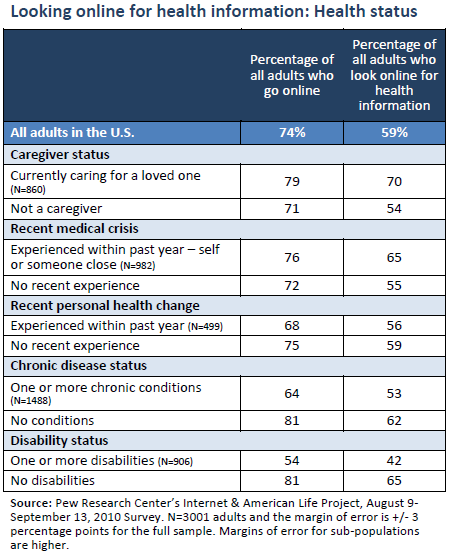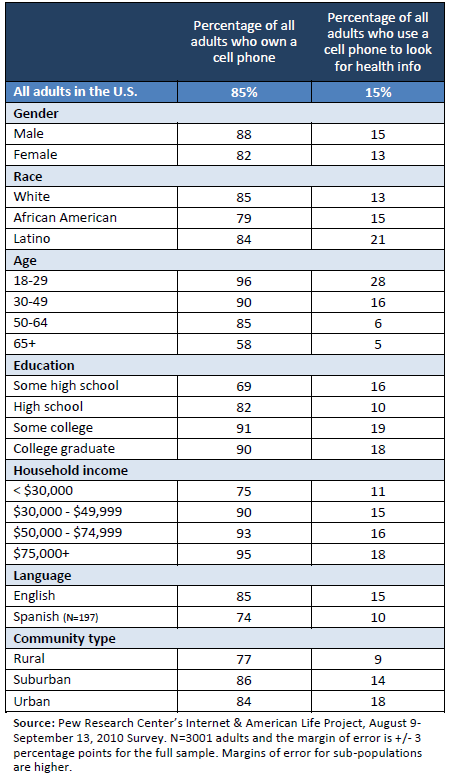Eight in ten adult internet users look for information online.
Again, 80% of internet users have looked online for information about at least one of the following topics:13

Internet access drives information access.
Since one-quarter of U.S. adults do not go online, the percentage of health information seekers is lower when calculated as a percentage of the total population: 59% of all adults in the U.S. look online for health information.
Women, non-Hispanic whites, younger adults, and those with higher levels of education and income are more likely than other demographic groups to gather health information online.
There are two forces at play in the data: access to the internet and interest in health information. For example, women and men are equally likely to have access to the internet, but women are more likely than men to report gathering health information online, which explains the gender gap in the chart below. For the other groups, their overall lower rate of internet adoption combined with lower levels of health information seeking online drives their numbers down significantly when compared with other adults.

As we have reported in the past, people who are living with chronic disease or disability are likely, if they have internet access, to be highly interested in online health information.14 For those two groups, it is their lack of access to the internet which holds them back from parity with people who report no chronic conditions or disability.
Two other groups with higher rates of online health information gathering include caregivers and people who went through a recent medical emergency.

Health information is going mobile.
Eighty-five percent of adults in the U.S. own a cell phone. Of those, 17% have used their phone to look up health or medical information. By comparison, seven in ten cell phone owners send or receive text messages; seven in ten use their phones to take pictures; four in ten access the internet on their phones; and 35% have software applications or “apps” on their phones.15

The typical search for health information is on behalf of someone else.
Half of internet users (48%) who go online for health information say their last search was on behalf of another person, 36% say their last search was on behalf of themselves, and 11% say it was both for themselves and someone else. Thus, while eight in ten internet users go online for health information, the impact of their inquiries may be even broader. And while some groups, such as the chronically ill and those living with disability, are less likely to be online and searching for health information, it does not mean that this information does not reach them through a surrogate of some kind.


